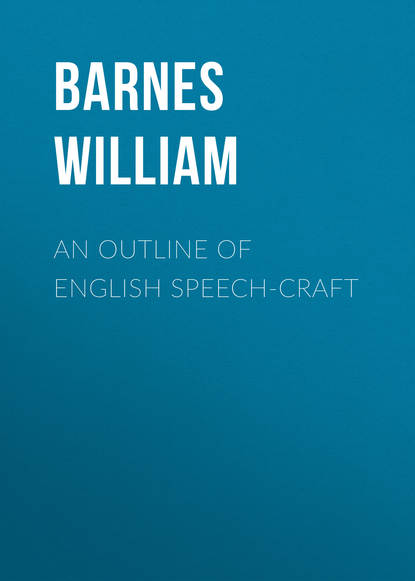По всем вопросам обращайтесь на: info@litportal.ru
(©) 2003-2024.
✖
An Outline of English Speech-craft
Настройки чтения
Размер шрифта
Высота строк
Поля
All but dig, dug. What a pity to put it out of keeping with all of the others! It is digged in the Bible.
-T, Long Stem-words.
-T, Short Stem-words.
-TH.
-T, Short (weak shortened).
The wear of these words was thislike:
Let-ede.
Let-de.
The mild penning, d, after a hard one, t, became hard, t. Whence lette, let, with the two tt run into one. A pity!
So were shapen feed, fedde, fed; lead, ledde, led; read, redde.
Weak – D (long).
Weak – D (short).
-L, Broad Sound (long).
A few of them are shortened, as feel, feeld, felt.
-N, Long.
-N, Short Stem-words.
-R, Broad Sounds.
Dare now makes durst; but in Friesic it is unmoulded – ‘and ne thuradon nâ wither forskina’ (and dared not to show themselves again).
-R, Short.
-S and – Z, Long.
-SS.
-SH.
-P, Long.
-P, Short.
Weak – B (short).
-V, Long.
-F, Short.
-M, Long.
All but come, came.
Stub-roots.
Time-words ending in an open breathing. Most of them are weak: —
A few of them are moulded: —
All those that end in two or three sundry breath-pennings are weak: —
A few time-words ending with a throat-penning mark the heretofore time by some oddness of shape; as,
They were opened in sound, and also took the ending ode, od (our ed), and then came into our shapes by sundry wonted changes: —
Then the d, a mild penning after a hard penning (k), became hard, t: —
as k and t are harsh together. Whence —
Our gh as in taught is the now unuttered (though still written) throat-penning.
Time-takings or time-givings may be taken as thing-marks, as ‘the hunting dog’; ‘the hunted hare.’
The sundry moods of time-takings are marked by sundry shapes of the time-word, or by bye-words or mark-words —shall, will, can, may, must.
The timings of time-takings are marked by sundry shapes of the time-word, and by bye-words or mark-words to it, as ‘the bird flies’ or does fly, or flew or did fly, or will fly.
Under-Sundrinesses of Time-takings
Time-takings are of sundry kinds, under sundry names, as to be, to walk, to strike.
Under-time-markings may be by single words, as ‘to write well or ill, slowly or quickly’; or by two or three words, as ‘he runneth very swiftly’; or by clusters of words, as ‘he runs with most amazing speed’; or ‘he works in a very skilful way.’
Fitting of the Time-word to all the cases of Person, Time, and Mood
In this fitting the time-word is helped by sundry bye-words or under-mark-words.
Can, from the Saxon cun-n-an, to ken, know, to know how. ‘I can write,’ I know how to write.
The heretofore time-shape of Ic can was Ic cuðe, for which we have now I could, with an l which was never in the root of the word, and for which there is not any ground.
May.—Mag-an, the stem of maht, might, means to strongen, to be or become strong (Lat. valere), as is shown by cases of its use in Saxon and other Teutonic tongues.
In an old Friesic good wish at the drinking to the health of a bride and bridegroom we find ‘Dat se lang lave en wel mage,’ that they long live and well may (strongen, bene valeant); and in Saxon, ‘Hu maeg he?’ how mays he? (strongens or valet).





